100 Women 2015: life as a nurse in a conflict zone
- Published
Azza Jadalla is a cancer nurse in Gaza city
In every conflict there are hidden heroes working behind the headlines. Their job is to save lives, minimise suffering and even just to help people die with dignity.
The soldiers of these hidden battles are nurses - and all over the world the vast majority of them are women.
For many nurses, every day is spent on the frontline seeing the world from a perspective the rest of us can only glimpse.
But for those who work in warzones it is even more dramatic. So what is it like to co-exist with this kind of conflict every day?


This year's season features two weeks of inspirational stories about the BBC's 100 Women this year and others who are defying stereotypes around the world.
Like us on Facebook, external and follow us on Instagram, external using the hashtag #100Women, external. Listen to the programmes here.

The BBC travelled to three different parts of the world, to the heart of three very different conflicts to meet some of these women.
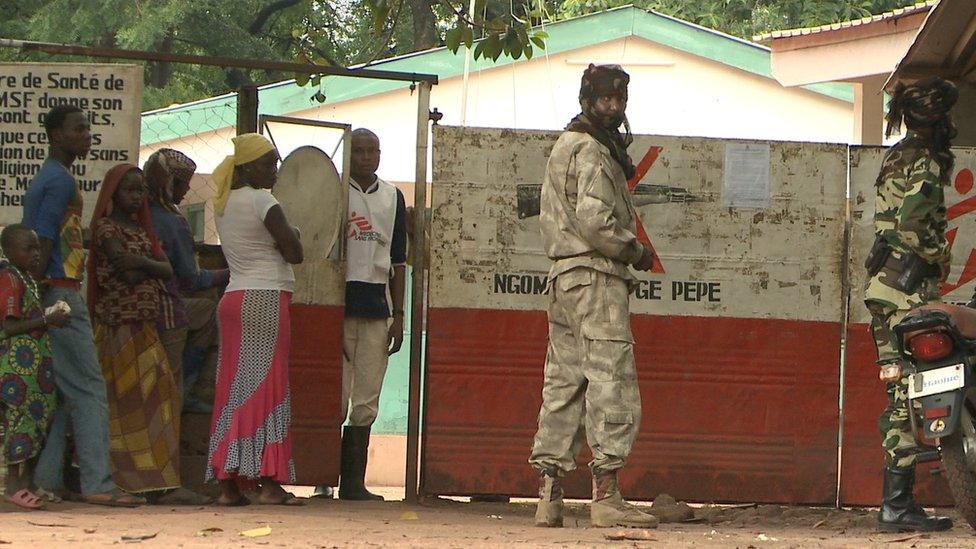
"People cannot walk around as they would like. When you walk you are afraid," says nursing assistant in the Central African Republic Marie-Ange Koutou
Despite the many miles separating them, they share bravery and a dogged commitment to their work, helping those who are suffering around them.
'It's like Vietnam'
Raiza Pantoja is an A&E nurse in the Pérez Carreño Hospital in Caracas, a city with some of the highest homicide rates in the world.
"The Pérez Carreño emergency room is like the Vietnam War," she says. "That is actually what we call it. When someone goes to the surgery triage, we say they go to Vietnam."
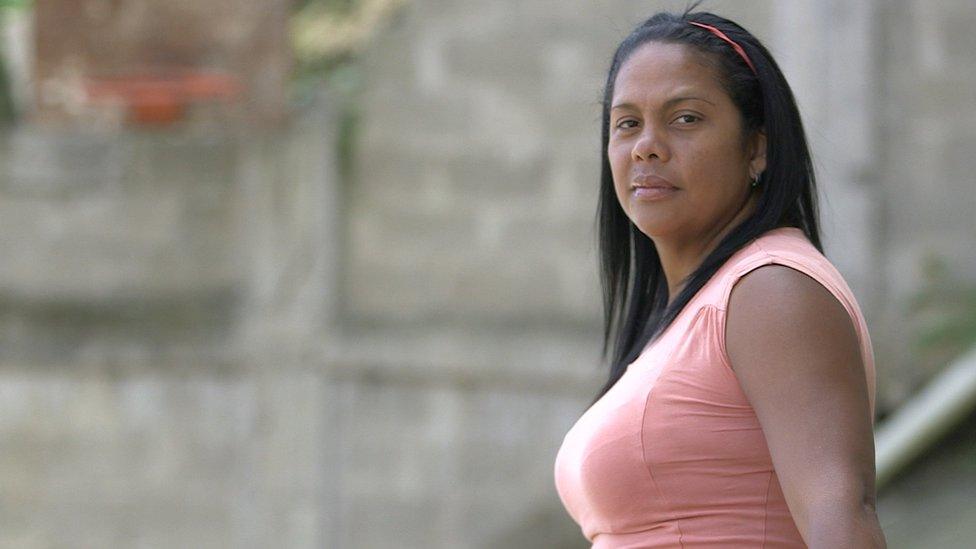
A&E nurse Raiza Pantoja says when gangs come into hospital, they "usually don't assault the nurses".
The drug and gang warfare that terrorises the city often spills into the hospital. The A&E ward has become such a dangerous place that military and police units guard the doors - meaning filming is strictly prohibited.
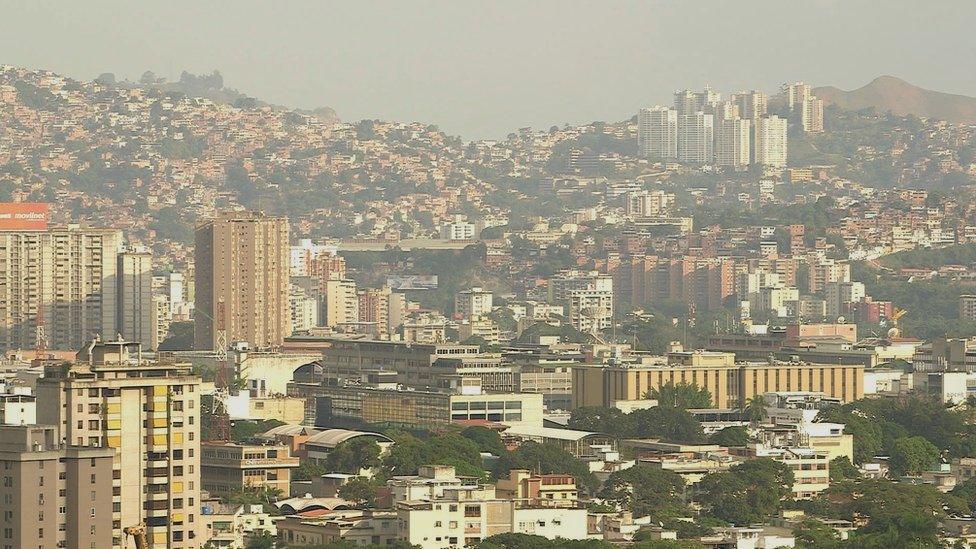
Caracas has some of the highest homicide rates in the world
When that security fails - which she says is often - everyone else runs and Raiza and her fellow nurses are the only ones patrolling the wards.
"When those people come to the hospital they usually don't assault the nurses," she says, almost nonchalantly. "They mostly attack other gangster patients - or doctors because they don't look after them."
'We feel sad'
At the age of 27, Azza Jadalla has already lived through six wars - three in the past seven years alone. She is a cancer nurse in Gaza's main hospital, Al-Shifa. Every day she deals with fall-out of the on-going conflict between Israel and Gaza's ruling party, Hamas.
Living in a place with a failing economy means she faces daily electricity and supply shortages at work.
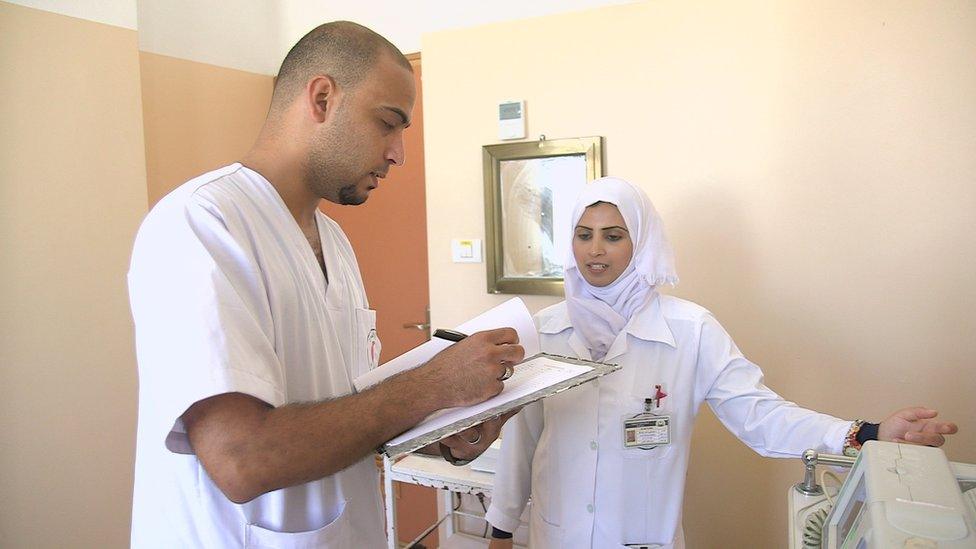
One of Ms Jadalla's cancer patients may not survive as they need treatment outside the country and the borders around Gaza are closed
"Sometime we go for two or three months without pay," she says. "But this doesn't make me want to do my job any less, because it's not the patient's fault."
Despite her dedication and due to shortages in Gaza, there is often only so much Ms Jadalla can do for her patients. For one patient Abdul (name has been changed), who is suffering from leukaemia, the only option for further treatment is outside Gaza.
But the borders are closed and it's unlikely Abdul will survive long enough to get permission to travel to Egypt or Israel.
"We feel sad if there is no treatment for the patients", she says. "It's a cancer patient, every minute, every hour is very important - for their lives, future, families."
'You are afraid'
Marie-Ange Koutou, 42, is a paediatric nurse's assistant in the Medecins Sans Frontiers Hospital in Kabo, a remote rural village in the north of the Central African Republic, where decades of civil war have left the country insecure and lawless.
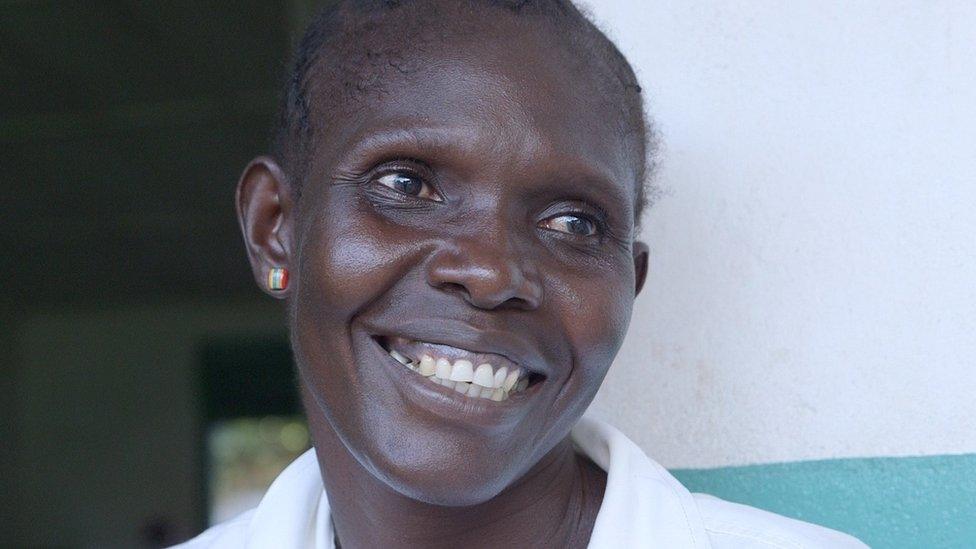
Ms Koutou does a lot of the work a nurse would do due to staff shortages
Kabo is one of the worst three places in the world for child deaths. Here the killing is done not by bombs and bullets, but the much more insidious enemies of malnutrition and malaria.
Ms Koutou has only had three months training but chronic staff shortages mean Ms Koutou does a lot of the work that a nurse would do in other parts of the world.
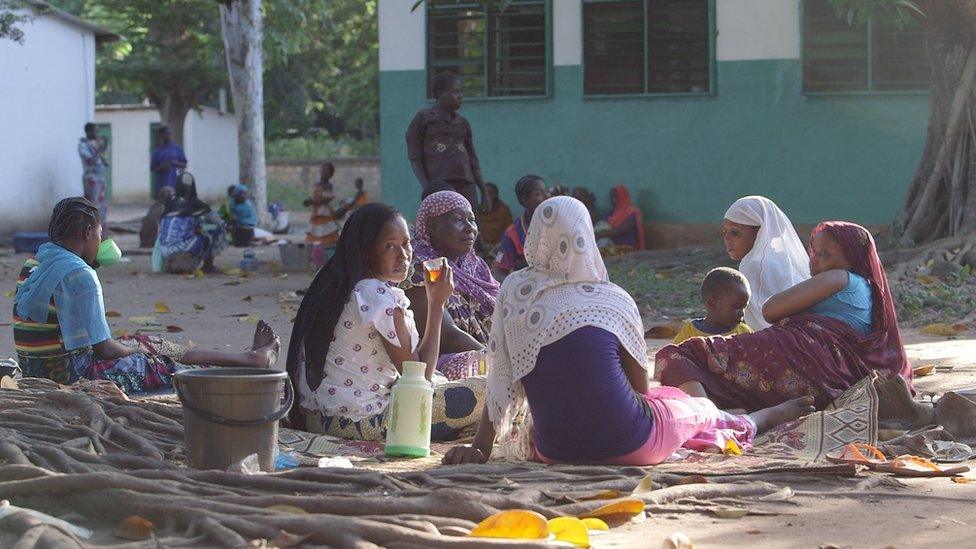
Everyday the 42-year-old she sees hundreds of malnourished children
Everyday she sees hundreds of malnourished children. This is a direct result of the conflict - since it escalated three years ago, armed groups have roamed the countryside meaning families are afraid to go to their fields to farm.
This rampant insecurity means Ms Koutou rarely strays far from the hospital. "If I have a few things to do, I do them. If not, I come home and go to bed," she says.
"People cannot walk around as they would like. When you walk you are afraid."
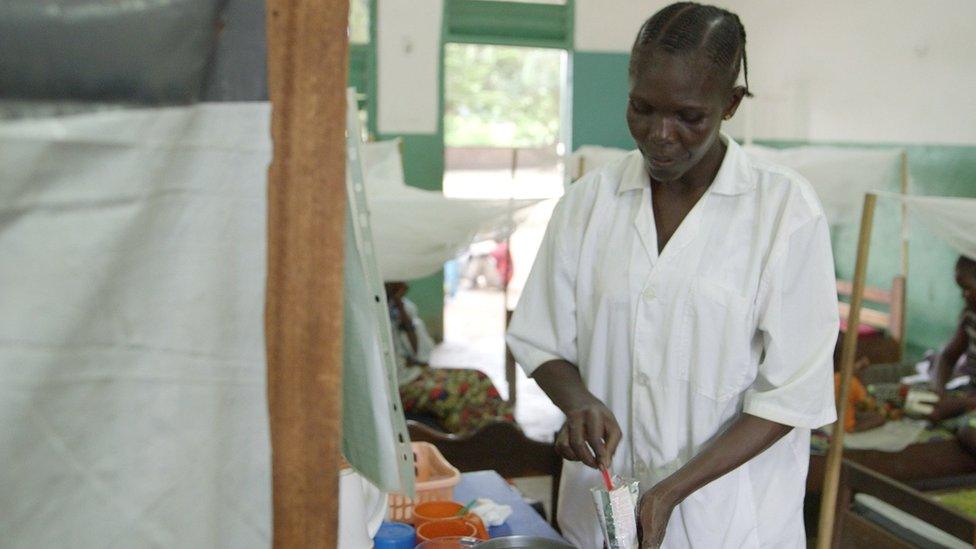
"I have to work so that my family can do better," says Ms Koutou
She is thousands of miles away from her family, including her four children, whom she hasn't seen since Christmas. The journey to the capital where they live is long, expensive and dangerous.
"It's difficult. But what else can I do?" she says. "I have to work so that my family can do better. But in the future I hope to be beside my children."
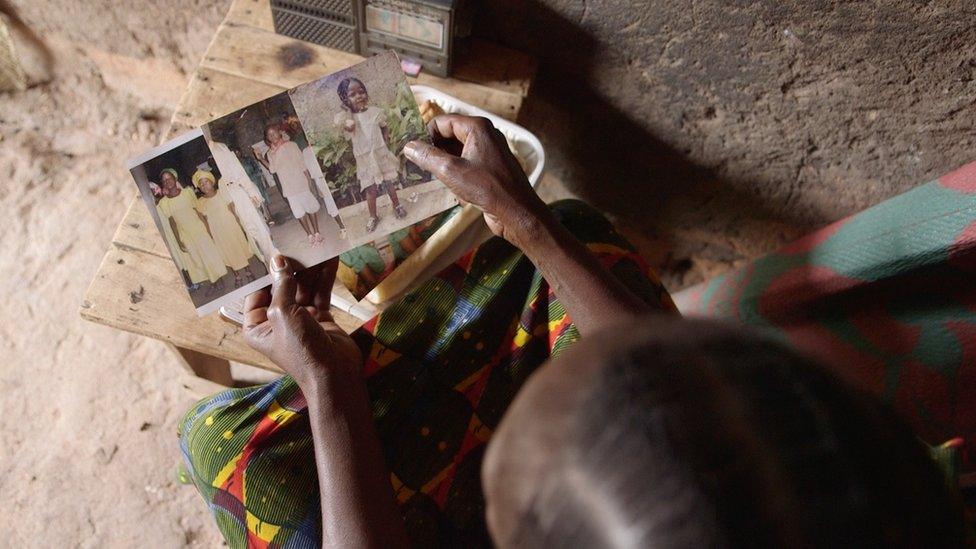
"But in the future I hope to be beside my children," says Ms Koutou
Although they do not usually make the news, the work of these stoic and courageous women should not be overlooked, as they endure the most extraordinary situations every day.
- Published19 November 2015
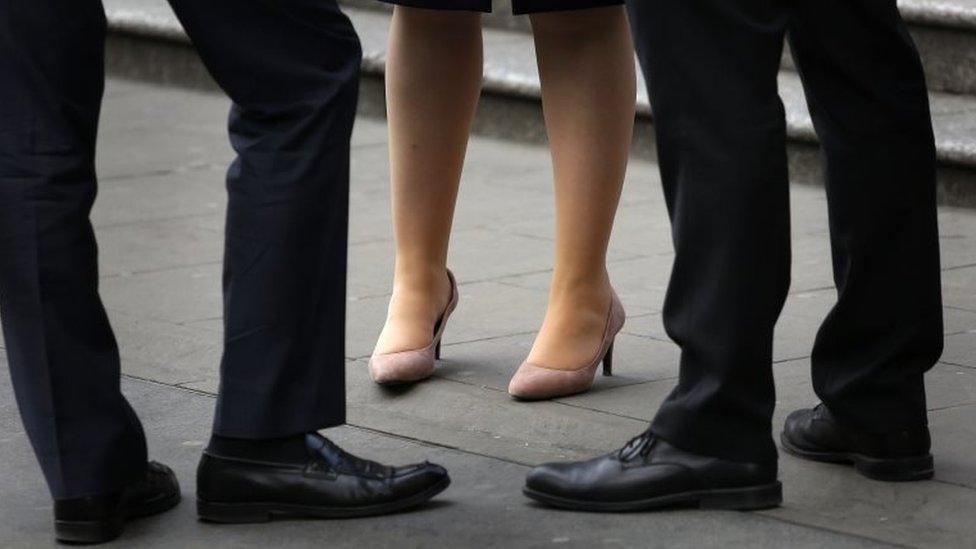
- Published19 November 2015
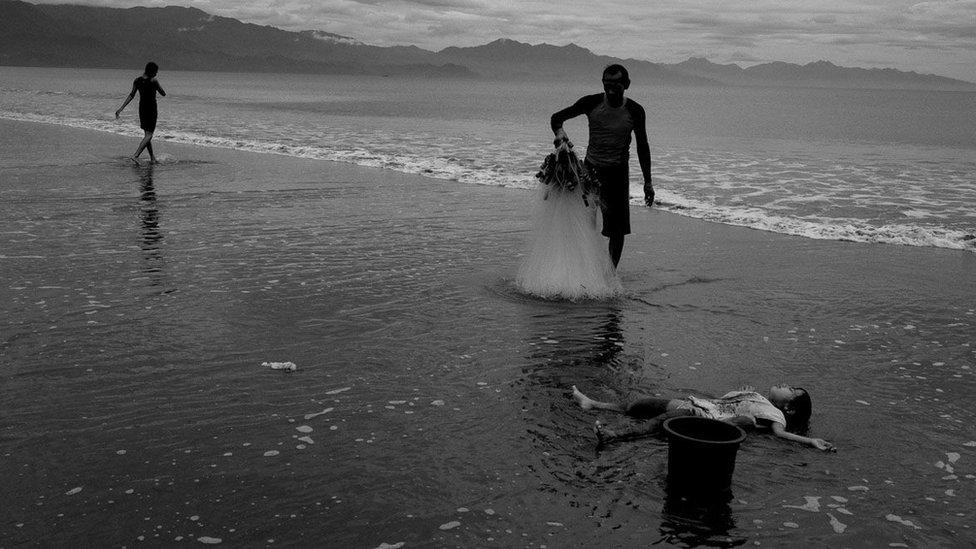
- Published19 November 2015
